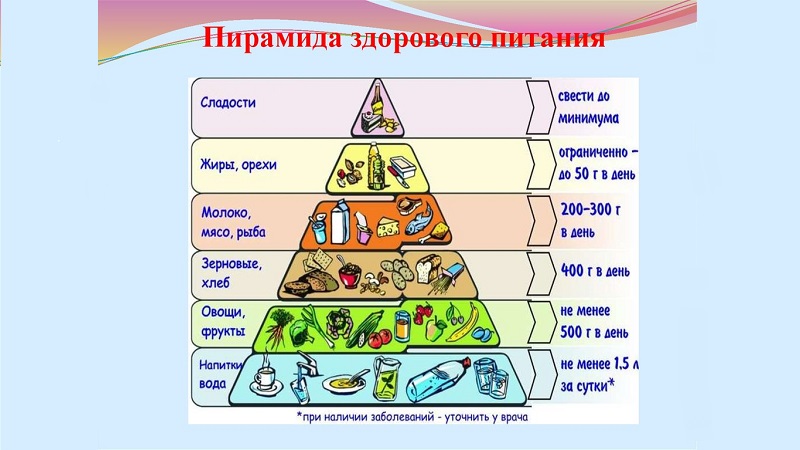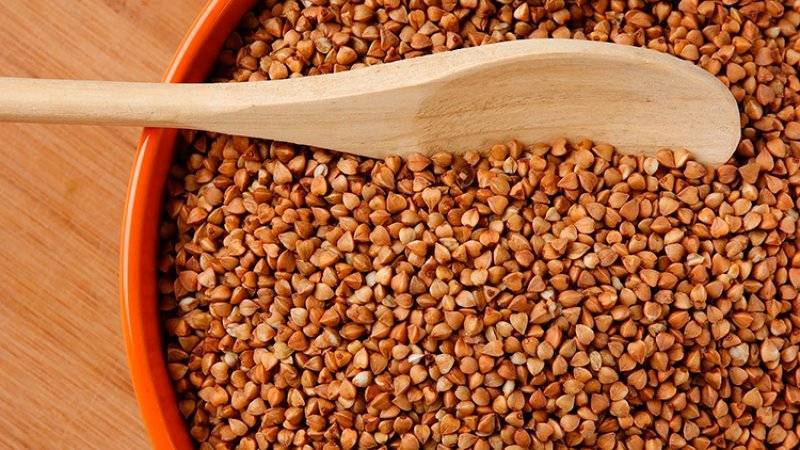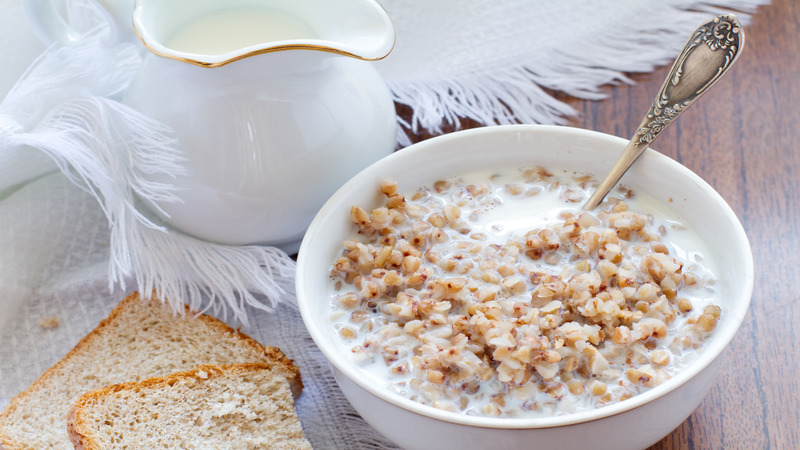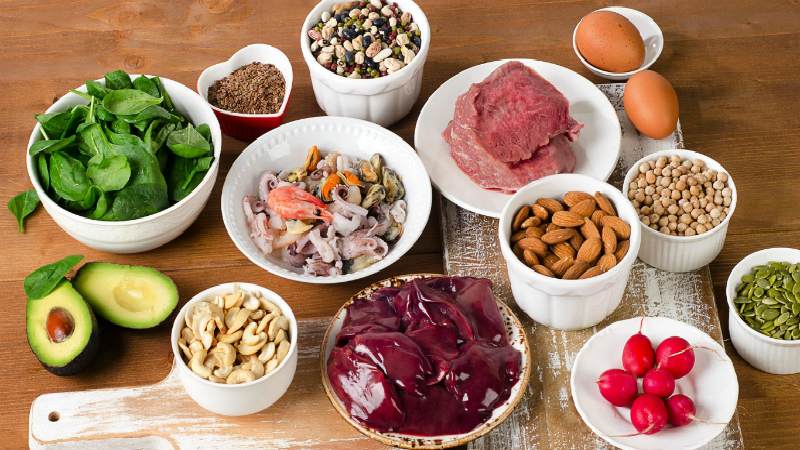What the body lacks if you constantly want buckwheat
Proper nutrition is the key to health and increased performance. A constant lack of certain vital substances can provoke various diseases, and often the body itself tells what elements it lacks.
Craving for cheese and cottage cheese speaks of a deficiency of calcium and fatty acids, the desire to eat salty - a lack of water and the need to observe a drinking regime. Sour pulls with gastritis with low acidity. A sudden switch to a raw food diet indicates mineral deficiency and dehydration. What is missing if you want buckwheat?
The content of the article
Composition, vitamins, microelements and useful properties of buckwheat
Buckwheat is not a cereal crop, it belongs to pseudo-grains and does not contain gluten (gluten free). Carbohydrates per 100 g of buckwheat 57.1 g, proteins - 12.6 g, dietary fiber - 11.3 g, water - 14 g. The calorie content of the kernel is 110 kcal per 100 g of boiled cereals.

Also cereals contain a large amount of trace elements:
- iron - increases hemoglobin;
- manganese - regulates carbohydrate-fat metabolism;
- zinc - protects cells from damage.
Among macronutrients:
- potassium - supports the work of the heart and blood vessels;
- phosphorus - stimulates the absorption of glucose;
- magnesium - controls blood sugar and improves overall metabolism;
- sulfur - saturates tissues with oxygen, has a positive effect on the work of the gallbladder;
- silicon - important for calcium absorption;
- chlorine - regulates water balance;
- calcium - supports the health of the musculoskeletal system;
- sodium - maintains water-salt balance.
Buckwheat contains vitamins E, PP, K, group B, which improve microcirculation and blood clotting, participate in protein metabolism, strengthen muscles, and have a positive effect on the nervous system.
The benefits of this cereal for humans are also due to the presence of quercetin and rutin. These flavonoids strengthen and cleanse blood vessels, and act as antioxidants. In smaller quantities, cereals contain iodine, boron, copper, fluorine and other elements.
What substances are missing in the body if you want buckwheat
From time to time, the body literally demands to add this or that product to the menu. We're not talking about daily sweets, coffee or beer, but healthy foods. Why do you always want buckwheat?

There are several reasons:
- Anemia... Buckwheat is rich in iron, besides it, this trace element is found in the liver, pomegranates and pomegranate juice, dried fruits, grains and nuts. With a lack of iron, the limbs become numb, weakness and dizziness are felt.
- Lack of magnesium... In addition to buckwheat, it is found in vegetable oils, cheeses, meat, fruits and other cereals. The lack of this macronutrient is indicated by weakness, apathy, and a decrease in blood pressure.
- Low protein diet... The diet of the average person is dominated by carbohydrate and fatty foods: a bias in favor of such a diet over time affects health. Proteins are essential for all tissues and organs, it is a building material for the body. In addition to buckwheat, proteins are found in meat, cheeses, fish, seafood, nuts, eggs, cottage cheese.
- Unbalanced diet. It is important to include in the weekly menu all products from the food pyramid, and sweets and fast food should be five times less than cereals, vegetables and fruits.
If you have severe health problems, you need to consult a therapist, who will prescribe a biochemical blood test for the content of trace elements and vitamins.
Why pregnant women often want buckwheat
During pregnancy, it is even more important to monitor the regular intake of vitamins and vital elements in the body. If you want buckwheat every day, it means that the expectant mother lacks useful compounds.

Buckwheat will be useful for the following problems:
- excessive weight gain;
- high blood pressure;
- swelling.
Important! Buy cereals only of the highest grade and not too dark: they are well cleaned and not overcooked.
Groats are useful pregnant women due to maintenance:
- protein needed by the mother and the unborn child;
- fiber, which helps the gastrointestinal tract, prevents constipation, which is important in late pregnancy;
- iodine, deficiency of which adversely affects the health of the fetus.
If during pregnancy a woman feels discomfort after eating buckwheat, it is better to refuse it. If there is no such problem, the cereals are boiled for 20 minutes in salted water in a 1: 2 ratio. You can also soak the cereals in water and salt for 3 hours, then cook for 3-4 minutes. Buckwheat is eaten with milk, butter, meat or vegetables.
Contraindications to the use of buckwheat
Croup is contraindicated for the following diseases:
- allergy;
- cholelithiasis;
- stomach problems - no more than 1-2 times a week;
- diabetes mellitus with renal failure;
- flatulence.

Advice and guidance from nutritionists
Nutritionists love this cereal for its beneficial properties.:
- There is no genetically modified buckwheat.
- It contains three times more nutrients than other cereals.
- Buckwheat with milk is close to meat in amino acid composition.
- Groats are high in calories, but do not cause a jump in blood sugar.
- Promotes detoxification, therefore it is often found in popular diets.
It is recommended from time to time to arrange unloading buckwheat days... Unlike buckwheat mono-diet, such days bring real benefits: they cleanse the body of toxins, saturate with useful elements without harming the figure, and contribute to weight loss.
If a mono diet is chosen, then the best combination is buckwheat with kefir... Washed with 2-3 tbsp. l. cereals, pour a glass of kefir overnight, in the morning buckwheat is ready. This is an excellent tool to get rid of excess weight, fill the body with useful substances, support beneficial microflora in the intestines, but such a diet is followed for no more than two days, because without a varied, nutritious diet, the body does not receive the necessary nutrients.
Attention! Such a diet is contraindicated in case of stomach problems: raw buckwheat is absorbed worse than boiled, and sour kefir can cause heartburn.
To support the cardiovascular system, with disorders of mineral metabolism it is recommended to eat cereals 1-3 times a week.
Conclusion
If you constantly want buckwheat, this may mean a lack of essential substances, for example, iron or magnesium. Buckwheat contains a high percentage of proteins, carbohydrates, micro and macronutrients, vitamins and dietary fiber, but cereal alone will not provide a full set of necessary elements.
By craving for this or that product, the body tells what it lacks. To fill the deficiency of the most important compounds, nutrition should be as varied as possible.